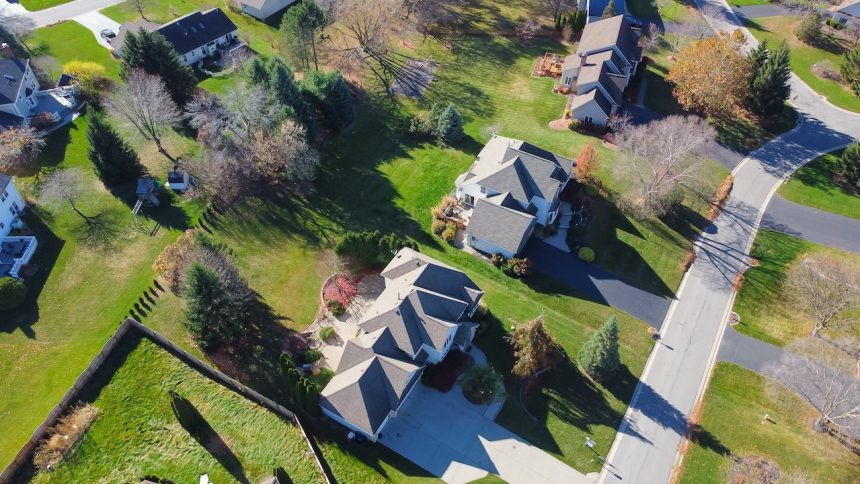Got a house you’re eager to sell in the Empire State? Many of New York’s key markets are popular destinations for homebuyers, and with median prices on the rise across the state, you may be able to make a nice profit. But prior to listing your property, it’s important to consider the cost to sell a house in New York, including closing expenses. Find out more about how much it costs to sell a house in New York here.
Sellers’ closing costs
Home sellers in New York, like those in any state, need to account for closing costs, or the expenses involved in completing a property sale. The state’s closing costs are high even for locations outside of New York City: They average 3.1 percent of the home’s sale price, according to data from CoreLogic. Because home prices here are also high — the statewide median sale price was $551,900 in August, per Redfin data — that puts closing costs at just above $17,000 (3.1 percent of $551,900 is $17,109).
However, sellers are not solely responsible for that full amount; buyers pay their share of the costs as well. Here are some of the most common closing cost for sellers in New York:
- Transfer taxes: Sellers are typically on the hook for New York’s real estate transfer taxes, which are fees associated with transferring ownership to the buyer. The rate is $2 for every $500 in value for homes under $1 million. For a median-priced home sale of $551,900, that equates to $2,207.
- Property taxes and HOA fees: Homeowners must pay any applicable state and local property taxes right up until the day the sale closes and ownership transfers to the buyer. For properties that are part of a homeowners association, the same goes for HOA fees.
- Legal fees: New York requires that an attorney draw up real estate sale contracts — your agent can’t do this for you — and it’s customary for both buyer and seller to have their own representation. The legal fees will be due at closing.
- Title-related expenses: Sellers often pay for a title search and title insurance to protect against ownership claims. These costs can vary based on the transaction, and it can sometimes be negotiated for the buyer to pay all or part of the expense.
- Escrow fees: If any transaction funds are held in escrow, there may be fees for managing the account. This cost is also negotiable and can potentially be shared with the buyer.
- Seller concessions: Sellers often offer to cover certain expenses for the buyer, such as paying for a necessary repair, to make the deal more attractive and keep things moving. In such cases, the amount will be due at closing.
Real estate agent commissions
If you’re selling your home with the help of a real estate agent, you’ll need to pay that agent’s commission fee. Most agents earn between 2.5 and 3 percent of the home’s final sale price — for a median-priced New York home of $551,900, 2.5 percent comes to $13,797. That percentage is often negotiable, though, particularly for higher-priced properties.
Keep in mind that home prices can differ widely across various markets in New York. Case in point: If you sell a home in Brooklyn, where August’s median sale price was $1.1 million, a 2.5 percent commission would come to $27,500. In Rochester, though, the median was just $170,000, so the commission figure drops all the way down to $4,250.
One silver lining for sellers: It used to be that home sellers paid both their own agent’s fee and the buyer’s agent’s as well. However, thanks to a recent lawsuit settlement, buyers may now be responsible for paying their own agent. Be sure who pays for what is clearly spelled out in your sale contract.
Home prep and moving costs
Frequently, spending some money upfront can help sellers make more money on the sale. Enhancing your home’s appeal may involve making minor repairs, staging the property, investing in professional photography, and more — all of which come at a cost. There’s no need to go overboard, though: Even small, simple improvements, such as adding some bright flowers at the front entrance, can increase curb appeal and improve the first impression your home makes on buyers. Your agent can provide personalized advice on the best strategies for making your home more marketable.
Also, remember to budget for having all your belongings moved to your new home. Moving costs can vary widely based on how much stuff you have and how far it’s being hauled, and long-distance moves generally cost much more than local ones.
How much do I get from selling my house?
Estimating the final amount you’ll earn from selling your New York home can be challenging, as it depends on several variables. Your net proceeds will be impacted by the sale price of your property, your total closing costs and more. To estimate how much you will ultimately earn on the sale, subtract your total amount of closing costs and other associated expenses from your final sale price. Don’t forget to account for paying off your remaining mortgage balance too, if you have one.
Reducing costs
As a seller, there are several strategies you can use to potentially reduce your costs. Consider these approaches:
- Negotiate commission rates: If your agent is willing to agree to a modest commission-fee reduction, it can result in substantial savings.
- Shop around for service providers: Take the time to evaluate different service providers, such as cleaning services, attorneys and title companies, to find the most competitive rates.
- List your home as-is: If your property isn’t in great condition, listing it as-is — thus signaling to buyers that you will not be doing any upgrades or repairs — can help you avoid those costs.
Alternatives
Instead of following the conventional path to selling your home, you may want to consider these alternative options:
- Sell by owner: The for sale by owner path means you market and sell your property yourself, without an agent, thus saving the cost of an agent’s commission fee. While this route will save you money, it’s also quite a lot of work.
- Sell to a cash homebuyer: Local homebuying companies and online iBuyers make all-cash offers and close much more quickly than a traditional sale. However, their offers will be lower than you’d likely get on the open market.
- Rent it out instead: Have somewhere else to live for a while? If selling immediately isn’t necessary, you might opt to generate a steady income by renting out your property. Being a landlord is a lot of responsibility, but it can be lucrative.
- Access your equity: If you need the cash but would rather not sell, consider tapping into your equity through a home equity loan or line of credit.
Next steps
If you’ve done all your research and you’re ready to sell, it’s time to team up with a local real estate agent who is well-versed in your specific area of New York. An experienced agent can leverage their expertise to help you bring in the highest possible price for your home, while keeping costs to a minimum.
FAQs
Read the full article here














